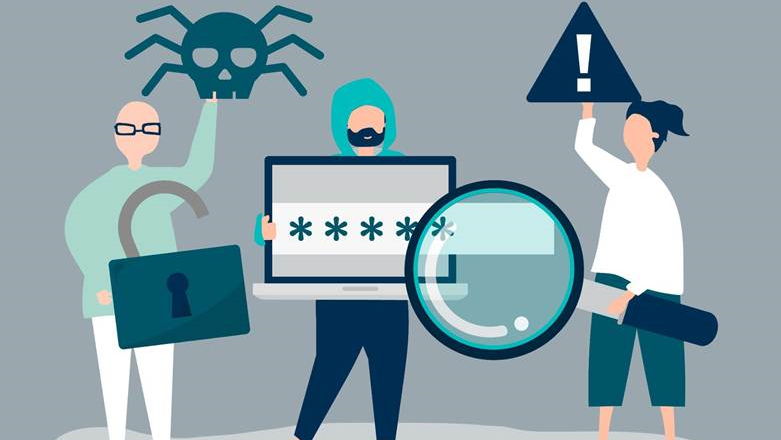Protect Your Leads: The Hidden Dangers of Virus-Infected PDFs
Viruses affect positive digital marketing outcomes by disrupting campaigns and compromising data. Malware may change marketing content, seize platforms, and send spam to customers. This traps marketing teams due to poor sales and mistrust by audiences.
Your PDFs could be infected even when they look clean to the physical eye. Avoid data integrity issues by downloading files from trusted sources and scanning them. Ensure your lead data is reliable and has integrity because a simple mistake damages your reputation and affects productivity.
Image Credit: Freepik
Why Do PDFs Get Infected With Viruses?
PDFs simplify file sharing because they open on any operating system, browser, or device. They are easy to share, and hackers often target them because they are widely used for official communication. These files allow content embedding, links, and script addition. This makes them prone to virus infections, causing data integrity issues for them. Hackers may inject infected files into the added elements, which self-execute once opened. This affects your data storage integrity and could damage your system.
People have always believed that there is no malware PDF because the file is fully secure. Technology and online threats have changed, and users have to ask the hard question: “Can a PDF have a virus?” A PDF have virus is a common thing in the modern digital environment. Devices such as an iPhone that were believed to be secure are also prone to infections. The reality is that no device or file is immune to malware, leading to data integrity issues.
How Lead Data Benefits Marketers
It is common for markets to collect information from online traffic and targeted audiences. The teams analyze this data, which helps them view traffic behavior and understand the pains and preferences of their targeted markets. The same data helps them create and launch customized campaigns that improve outcomes.
Quality lead data benefits marketers with higher ROI, conversions, and efficient outreach. Strategic campaigns lead to strengthened relationships, perfect communication, and smart decisions. This data is important because it contains names, contacts, preferences, and purchase history of potential customers.
How Virus-Infected PDFs Can Lead to Data Integrity Issues
Your marketing data ethics start with having strong data storage integrity. Lead data that is reliable and has integrity is safe and accurate. It cannot be changed unless a recognized person authorizes it. A virus-infected PDF changes everything and leads to many data integrity issues.
1. Hacker Access
Infected PDFs might have malware that steals file and system passwords. This opens access to hackers, leading to easy compromise of your data storage integrity. Your email, cloud, and CRM platforms get compromised, and your team may lose all marketing data. Hackers may change campaign content and send fake messages to your audiences.
2. Stolen Data
Viruses in a PDF can self-execute and install spyware or ransomware in your system or customer device. This software begins to collect data, and no one might ever know unless you scan the system. The virus steals data from your CRM and could spread to accounts, the front office, and HR systems.
Everyone’s login data, including your lead information and campaign history, could be stolen. Hackers often use this data for phishing and spam campaigns. They use it for identity theft and privacy compromises, which erode your team’s confidence and online reputation. Your customers or subscribers may unsubscribe from your email lists or mark your campaigns as spam, leading to failed campaigns.
3. System Blocking For Ransom
Some viruses affect your PDF files as ransomware, locking your system and documents from access. Hackers compromise your data storage integrity by encrypting your data with malicious software. Once this is done, cybercriminals demand ransom and refuse to release the system until paid.
System blocking is serious because you cannot access your lead data or launch campaigns. Your team fails to achieve meaningful conversions, orders get canceled, and your revenue begins to leak. You must always ensure your data is reliable and has integrity to avoid harming your lead campaigns.
4. Corrupted Lead Data
Your marketing team might not experience unreasonable ransom demands from cybercriminals. Some malicious people want to damage your lead data to avoid competition and cause your company to crumble. You might experience serious data integrity issues due to infected PDF files.
Such a file waits to be opened and releases polymorphic or direct-action viruses that delete your documents. Some PDF viruses may scramble your lead data or remove important information from it. This affects campaign integrity, causes errors, and limits trust from customers.
5. System Tracking
Hackers might inject viruses into your PDFs, aiming to install malware to help them track your system. Your competitors might do this to study your campaign patterns, content tone, and customer responses. They track your CRM communication, allowing them to redesign their marketing content and campaign approach. This positions them better in the market.
Image Credit: Freepik
How to Avoid The PDF Virus Infection Trap
PDF viruses quietly enter your system and may cause irreparable data integrity issues. Sometimes your PDF, whether from a customer or another department, might appear clean and harmless. Unfortunately, a brochure, resume from a job applicant, or an invoice might have viruses awaiting execution. You can prevent system infection through PDF files or reduce infection risks through simple steps:
1. Protect your lead management platform. Your CRM is your key lead management platform because it contains all your lead data. Protecting this system and other campaign management tools is important in ensuring top-notch data integrity. Protect these systems through the following simple actions.
2. Control access through role-based permissions: Let your authorized teams access the system depending on their roles. This helps you know the point where the system compromise happened.
3. Implement multi-factor authentication: Beyond passwords, create a complex two-factor authentication system.
4. Encrypt data: Encrypt your CRM and other management tools' data. Encrypt your databases, including backups.
5. Track activities: Keep records of system accesses, activities, and data movements. Take action when you identify suspected activities to maintain data integrity.
6. Turn off JavaScript in PDFs. Some PDFs might have JavaScript to support specific features. An attacker might use this feature to add attack malware to a PDF. Open settings to check whether the file has JavaScript and turn it off.
7. Always update your system. Update your security, operating system, CRM systems, and PDFs. Update your email, collaboration, and communication software too. Using the latest versions limits attacks.
8. Confirm the source before downloading. Do not download files if you don’t trust the source or website. Improve your online security by deleting suspicious emails and refusing to click pop-ups. Sources such as spam and phishing websites exist to destroy your data or take your system captive for ransom.
9. Keep data backups. Viruses might delete your files, block the system, or steal data for monetary gain. Having backups ensures easy recovery if such incidents happen. It ensures your marketing campaigns do not stop.
10. Scan your system and files. Develop the habit of scanning your files before opening them. Scan your system regularly to identify and remove files that might affect your data storage integrity.
11. Offer training. Your campaign team and entire work team are important in ensuring your data is reliable and has integrity. Some of them make mistakes because they do not know. Train them on data integrity issues and securing the system.
12. Do not open PDF files in browsers. Opening PDFs in browsers increases the risk of virus attacks. Download your files and scan them before opening them. Your company might allow uploads such as resumes and job applications. Scan these documents before downloading them.
Conclusion
PDFs are often used in official communication, but they pose a risk of virus infection to lead data. Hackers might inject malicious files into PDFs to steal your data, corrupt, or delete campaign content. Take precautions when downloading, opening, or sharing files. Install antivirus tools, scan documents, and know their source. Train your team to identify infected files and implement a strong backup system. These actions ensure your marketing data is reliable and has integrity.







